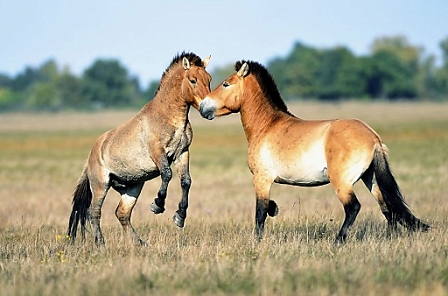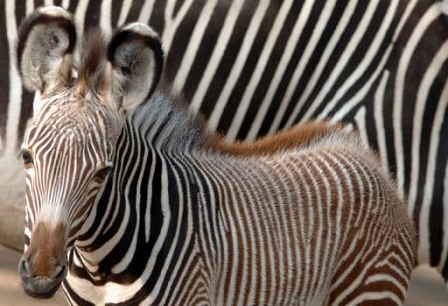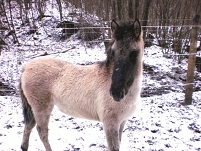Erstellt am: 15. 2. 2013 - 13:24 Uhr
A wild ride
While horses may have been in the news for all the wrong reasons in the last couple of weeks, this week's Reality Check Saturday Special trots off to find out about the wild horses that are very much alive, and the people determined to make sure they stay that way.
A personal passion
I wouldn’t say that horses are an interest of mine, they are more of a passion. For as long as I can remember there have been horses somewhere in my life, and on the odd occasions they have disappeared, it has never been long before they were knocking on the door again.

EPA
My special field within the equine universe is horse behavior and in helping people to work with horses in a way that makes sense to the horse. Without going into too much detail, it’s essentially about watching how horses communicate amongst themselves, and applying the same principles to the human/horse relationship. It starts with understanding that the horse’s view of the world is rather different from our own, and that they have different concerns and priorities.
The call of the wild
Domestic horses have been around people for so long, that it’s often very hard to separate the behavior that is natural to the horse from the behavior they have learned from us. That’s where the study of wild horses comes in: not horses that are wild in temperament, but those that are living in a natural, wild state, with minimal contact to humans. It's in this wild state that we can really see how their society works.
So, when the opportunity arose to cover the International Wild Equid Conference in Vienna for FM4, and get chatting to some of the world’s top authorities on wild horses, I jumped at it before you could say "equus ferus".
First of all, I should explain that there are different types of "wild equid" in question. There are wild horses in the sense of the breeds that are the ancestors of the modern, domestic horse but have never been domesticated. The most famous of is probably the Przewalski horse, and most authorities agree that this is the only remaining true wild horse. The last other true wild horse was the Tarpan, which became extinct early in the 20th century.

EPA
There are also wild relations of the horse, such as the zebra and wild ass. As well as "wild" equids, there are also feral horses, which are domestic horses living in natural circumstances, such as the British native breeds, the American mustangs and the Australian Brumbies.
Then there are horses which are descendants of true wild horses, and still differ genetically from domestic horses, but who have been domesticated to some extent. Experts argue long and loud about where the line should be drawn, and how many breeds of this type of "wild" horse there are, but two European examples are the Polish Konik and the Iberian Sorraia.
Zebras, cowboys and the Mongolian economy
It was a eye-opening few days. I found out why the Grevy’s zebra in Kenya is endangered while the plains zebra is not (the stripes play an important role, as do the habits of the local people!), why cowboys in the US were not always friends with those icons of the wild west, the mustangs, and why Mongolia is standing on a precipice between its traditions and its future, trying to balance the reintroduction of the Przewalski horse with modern development that could threaten its habitat.

EPA
Preservation closer to home
Quite apart from the conference, I then happened to meet Claudia Radbauer, an Austrian living close to Vienna, who is starting a project to breed Sorraia Mustangs.
Her aim is to preserve the bloodlines of the endangered Portuguese wild horse, the Sorraia, and her dream is to build up a herd that will not only help preserve the Sorraia Mustang breed, but also allow them to live in a way that is as close to their natural environment as possible.

Kate Farmer
When I asked her why she had chosen this particular breed, she told me it was connected to her music. It may sound an unlikely combination of talents, but the lady who is forging a place for endangered wild horses in Austria is also a star of the New York dance music scene, under the name of Lula.
Saturday's Reality Check takes a wild ride from the steppes of Mongolia, to the wild horse reserves of the United States, from the scrublands and plains of Kenya to the lush forest of the Vienna Woods.
Join Riem Higazi at 12 noon, and meet the people who are saving the wild horses of the world.
Dieses Element ist nicht mehr verfügbar


